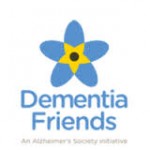
Seminar 1
Title: Dementia and digital selfhood: Identity formation in the age of social media
Speaker: Dr Catherine Talbot
Date and time: 10th February @ 12.30pm
Abstract: A diagnosis of dementia in mid-life can be challenging, often causing losses or changes in a person’s identity as a worker, partner, or parent. Dementia also continues to be a stigmatised condition, whereby those with the diagnosis are frequently identified as ‘victims’ and ‘sufferers’. In contrast, social media may provide some individuals with a means of reconstructing identity, by facilitating narrative and community membership. In this presentation, Dr Catherine Talbot will discuss the findings of her interview study with 11 people with young-onset dementia who use Twitter. Her findings suggest that people with young-onset dementia are using Twitter to re-establish, communicate, preserve, and redefine their identities. However, there are some risks as Twitter was sometimes a hostile environment for individuals who did not present in a ‘typical’ manner or faced technical difficulties because of their symptoms. These findings have important implications for post-diagnostic support provision and the design of accessible social media platforms.
Seminar 2
Title: Functional and structural plasticity in the ageing brain
Speaker: Prof Hana Burianová
Date and time: 20th April @12.30pm
Abstract: Determining the mechanisms that underlie neurocognitive ageing and facilitating the development of effective strategies for cognitive improvement are essential due to the steadily rising ageing population. One approach to study the characteristics of ageing comprises the assessment of functional and structural connectivity in the brain, delineating markers of age-related neurocognitive plasticity. In this talk, Prof. Hana Burianová will discuss the findings of several neuroimaging studies, which demonstrate evidence of age-related functional alterations, such as compensation and/or dedifferentiation, as well as structural decline, such as reduced white matter integrity. The complex relations between the brain reorganisation and behavioural performance have critical implications for the efficiency of neurocognitive functioning in older adults.
Seminar 3
Title: Interactive Digital Narratives for Health: Approaches to using storygames as intervention and education
Speaker: Dr Lyle Skains
Time and date: 16th June @ 12.30pm
Abstract:
Interactive digital narratives (IDNs) (a.k.a. digital fiction, storygames, hypertexts, interactive fiction) are an emerging form of engaging storytelling adaptable to many devices, platforms, purposes, and audiences. This talk highlights pilot studies in creating and using IDNs as health and science education-through-entertainment on the Playable Comms project (playablecomms.org). As an interdisciplinary network of projects, Playable Comms combines science and arts research and practice to develop a model for creation of health- & sci-comm IDNs, and evaluates their efficacy, attempting to measure message uptake from outright rejection to holistic adoption engendering associated behavioural change. IDNs can be used in schools, GP waiting rooms, on tablets and smartphones; interactivity significantly increases retention, particularly when incorporated into media that audiences voluntarily and eagerly devote attention to.
We hope you will join us at our seminars, if you are interested in attending please email adrc@bournemouth.ac.uk and we will send you the relevant zoom meeting details.
Thank you for your support
Best wishes
The Ageing and Dementia Research Centre
 FMC Research Process Seminars. Upcoming sessions – all staff and research students welcome
FMC Research Process Seminars. Upcoming sessions – all staff and research students welcome Invitation to join ADRC Research Meetings
Invitation to join ADRC Research Meetings










 Dr. Ashraf cited on ‘Modest Fashion’ in The Guardian
Dr. Ashraf cited on ‘Modest Fashion’ in The Guardian NIHR-funded research launches website
NIHR-funded research launches website Academics write for newspaper in Nepal
Academics write for newspaper in Nepal New paper published on disability in women & girls
New paper published on disability in women & girls MSCA Postdoctoral Fellowships 2025 Call
MSCA Postdoctoral Fellowships 2025 Call ERC Advanced Grant 2025 Webinar
ERC Advanced Grant 2025 Webinar Horizon Europe Work Programme 2025 Published
Horizon Europe Work Programme 2025 Published Horizon Europe 2025 Work Programme pre-Published
Horizon Europe 2025 Work Programme pre-Published Update on UKRO services
Update on UKRO services European research project exploring use of ‘virtual twins’ to better manage metabolic associated fatty liver disease
European research project exploring use of ‘virtual twins’ to better manage metabolic associated fatty liver disease